Boosting Food Security: Sustainable Agriculture in Latin America and the Caribbean
Imagine waking up at dawn every day, working in a corn or bean field from sunup to sundown, and still not having enough to feed your children.
This is the heartbreaking struggle for many families across Latin America and the Caribbean. They are hardworking and determined farmers. But without the right tools, training, or access to fair markets, their crops can’t produce enough to feed their own households, let alone earn a living.
Farming success is not always about effort. In many instances, it’s about access.
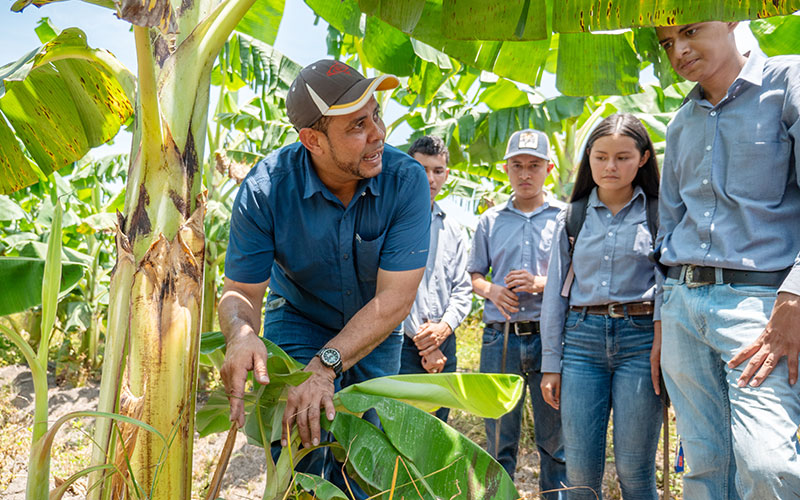
And for these families, agriculture holds the power to change everything, but only if it’s paired with support that helps them grow more, sell more, and build more secure, nourished lives.
What Is Food Security, Really?
Food security doesn’t mean a full pantry, it means a stable, nourishing life.
Furthermore, food security means that every person has regular, reliable access to enough nutritious food to live a healthy and active life.
Without food security, a mother can’t think about her child’s education because she’s worried about what they’ll eat tonight. A father might have to leave his family to travel to far away towns where there is better farm work available.
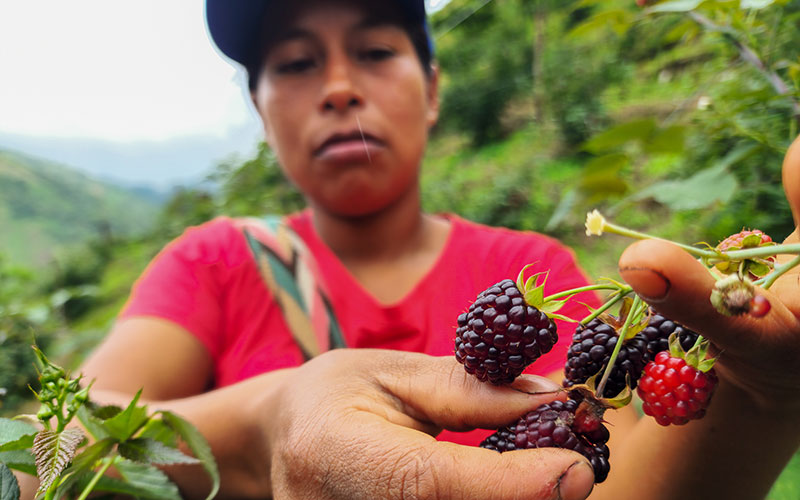
Why Can’t Families Just Grow More Food?
If they’re farmers, can’t they just grow more food?
The answer is complicated.
Here are four major barriers smallholder farmers face every day:
1. Lack of Tools and Equipment
- • Many families work the land with machetes, hoes, and buckets. No tractors or tillers.
- • Low-quality seeds and tools lead to weak crops, no matter how much sweat goes into the soil.
2. Little to No Training
- • Many farmers haven’t been trained in sustainable techniques like crop rotation, composting, or irrigation.
- • Without proper storage and harvesting knowledge, valuable food gets lost before it’s ever eaten or sold.
3. No Access to Fair Markets
- • When a harvest does go well, farmers often can’t sell it.
- • They’re forced to accept unfair prices from middlemen or let the food go to waste.
4. Unpredictable Climate
- • From droughts to hurricanes, farming families have no buffer against disaster.
- • A single failed season can plunge a family back into hunger.
These overlapping challenges create what’s called multidimensional poverty – a cycle where poor health, poor nutrition, and limited opportunity reinforce each other.
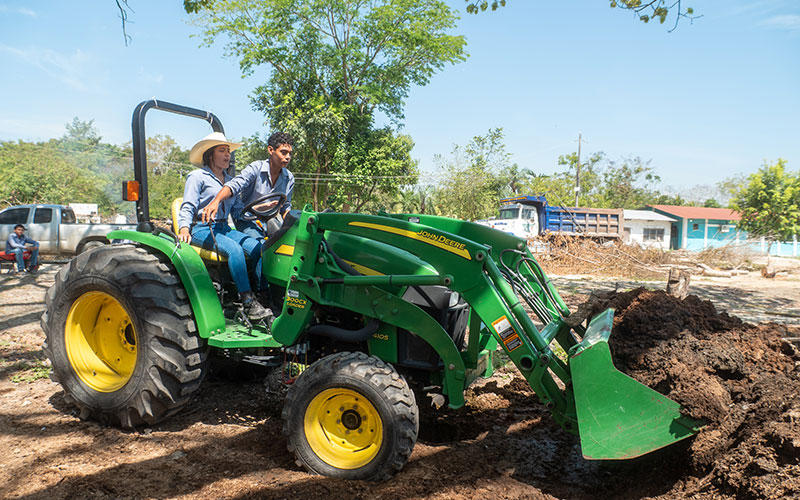
Why Agriculture Leads to Lasting Change
When families have what they need to farm successfully, everything shifts.
Here’s what sustainable agriculture makes possible:
- • Bigger harvests = more food on the table
- • Surplus crops = extra income for school fees or medicine
- • Smarter farming skills = confidence and independence
- • Stronger markets = neighbors supporting neighbors
That’s why Food For The Poor invests in agriculture as a proven solution, it’s not a quick fix, it’s a lasting one.
When you give to Food For The Poor, you can be the reason a farming family breaks free from the cycle of hunger.
Give today
What Food For The Poor Is Doing to Help
Let’s look at how Food For The Poor is walking alongside farming families and helping them grow futures that last:
Tools and Training
Farmers receive high-quality tools like hoes, wheelbarrows, and even tractors. But just as important, they’re trained in practical, sustainable techniques:
- • Crop rotation
- • Soil restoration
- • Composting
- • Safe food storage
- • Drip irrigation
In Choloma, Honduras, more than 400 students at the Agriculture School of Valle de Sula learn sustainable farming on land equipped with both traditional tools and a modern tractor donated by Midwest Mission through Food For The Poor.
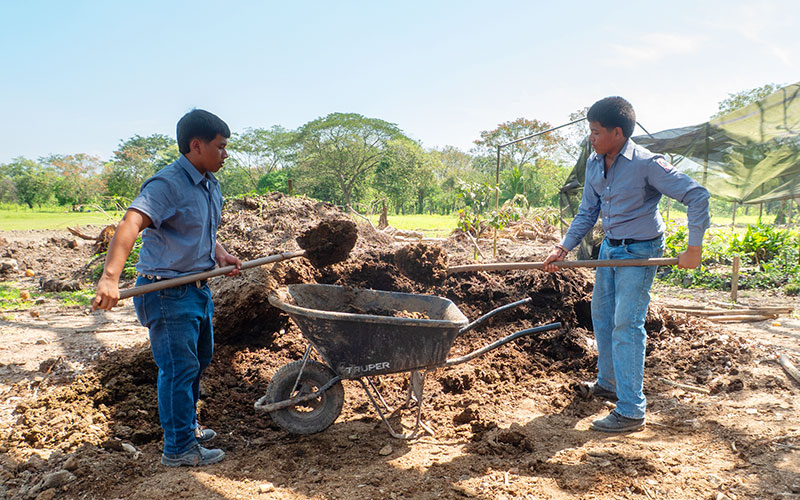
Market Access
Farmers also learn how to organize into cooperatives, where they can sell their harvests together, negotiate fair prices, and reach local and regional buyers without middlemen taking most of the profit.
Water Systems
Rainwater collection and simple irrigation systems are life-changing in dry seasons, preventing crop failure and giving families peace of mind.
Support for Women
Many Food For The Poor agriculture programs specifically support women farmers, helping them gain financial independence, move their families forward, and lead their communities.
And everything is done in partnership with the people themselves. This is not aid imposed from outside, it’s a collaboration built on trust and shared knowledge.
Why Agriculture Work Matters Right Now
Food prices are rising. Weather patterns are shifting. And for farming families, the margin of survival is shrinking.
But with the right support, they don’t have to just survive.
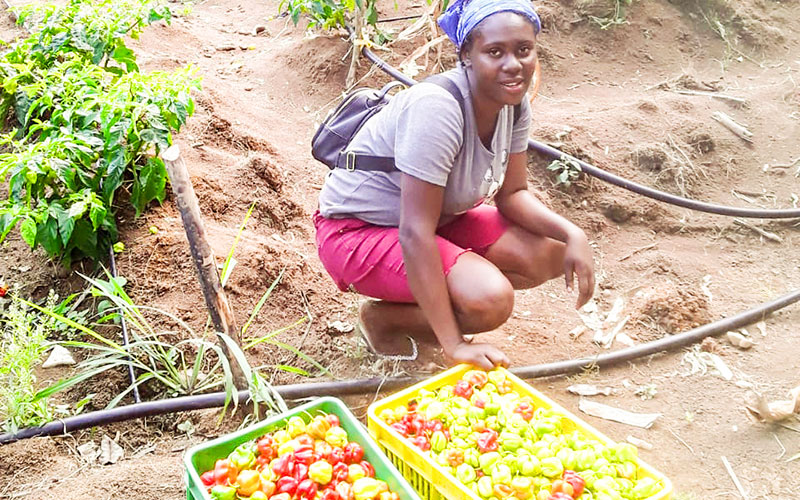
Today, you can join Food For The Poor and our global neighbors in Latin America and the Caribbean to produce something deeply practical and profoundly human.
When you support agriculture and food security, you’re investing in a family’s ability to stand on their own. You’re helping them move from subsistence to stability – and maybe even abundance.
Let’s dig in.
Your gift today equips families with what they need to grow more food, earn more income, and nourish their communities. Support sustainable agriculture today and you can help families unlock food security one harvest at a time.
Visit foodforthepoor.org to learn about sustainable agriculture and more areas where you can help transform lives.
Give Today

